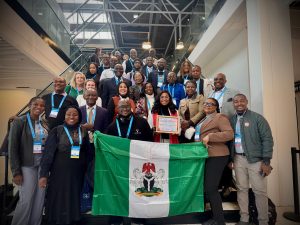Hamas has strongly condemned recent statements by Israeli Finance Minister Bezalel Smotrich, calling them an “explicit threat” and an “open call for genocide” against Palestinians in Gaza. The remarks, reported by Al Jazeera, have drawn widespread condemnation from Arab leaders and international human rights organizations.
Smotrich allegedly argued that no humanitarian aid should enter Gaza and suggested making the territory uninhabitable to pressure Palestinians to leave “voluntarily.” His comments come amid a deepening humanitarian crisis in Gaza, where Israel’s military campaign and blockade have displaced over a million people, leaving many without food, water, or medical care.
READ: The World Will Remember the Leader Who Put Israel in Its Place – Viral War Footage Sparks Debate
“A Call for Ethnic Cleansing”
In a statement on Monday, Hamas accused Smotrich of openly endorsing policies that it says Israel has been implementing since October—”systematic destruction, starvation, and mass killings.”
“This is an explicit threat and an open call for genocide and the forced displacement of our people,” the group said. “The world must take these remarks seriously and hold the occupation accountable for its crimes.”
Hamas urged international bodies and governments to denounce what it described as “Israeli terrorism against a defenseless civilian population.”

Escalating Tensions and Global Outrage
Smotrich, a far-right Israeli official, has not publicly responded to the backlash. However, Israeli authorities have repeatedly stated that their military operations target Hamas fighters and infrastructure, not civilians.
READ: HR Chief & CEO Caught in Coldplay Kiss Cam Scandal – Now He Risks Losing His $1 Billion Company
Analysts warn that such inflammatory rhetoric could worsen violence and undermine ceasefire negotiations. Meanwhile, demands for an independent investigation into alleged war crimes in Gaza are growing. The United Nations has yet to issue an official response to Smotrich’s comments.
Analysts warn that such inflammatory rhetoric could further escalate violence and hinder efforts toward a ceasefire or diplomatic solution in the region.
Discover more from TOKTOK9JA MEDIA
Subscribe to get the latest posts sent to your email.



























